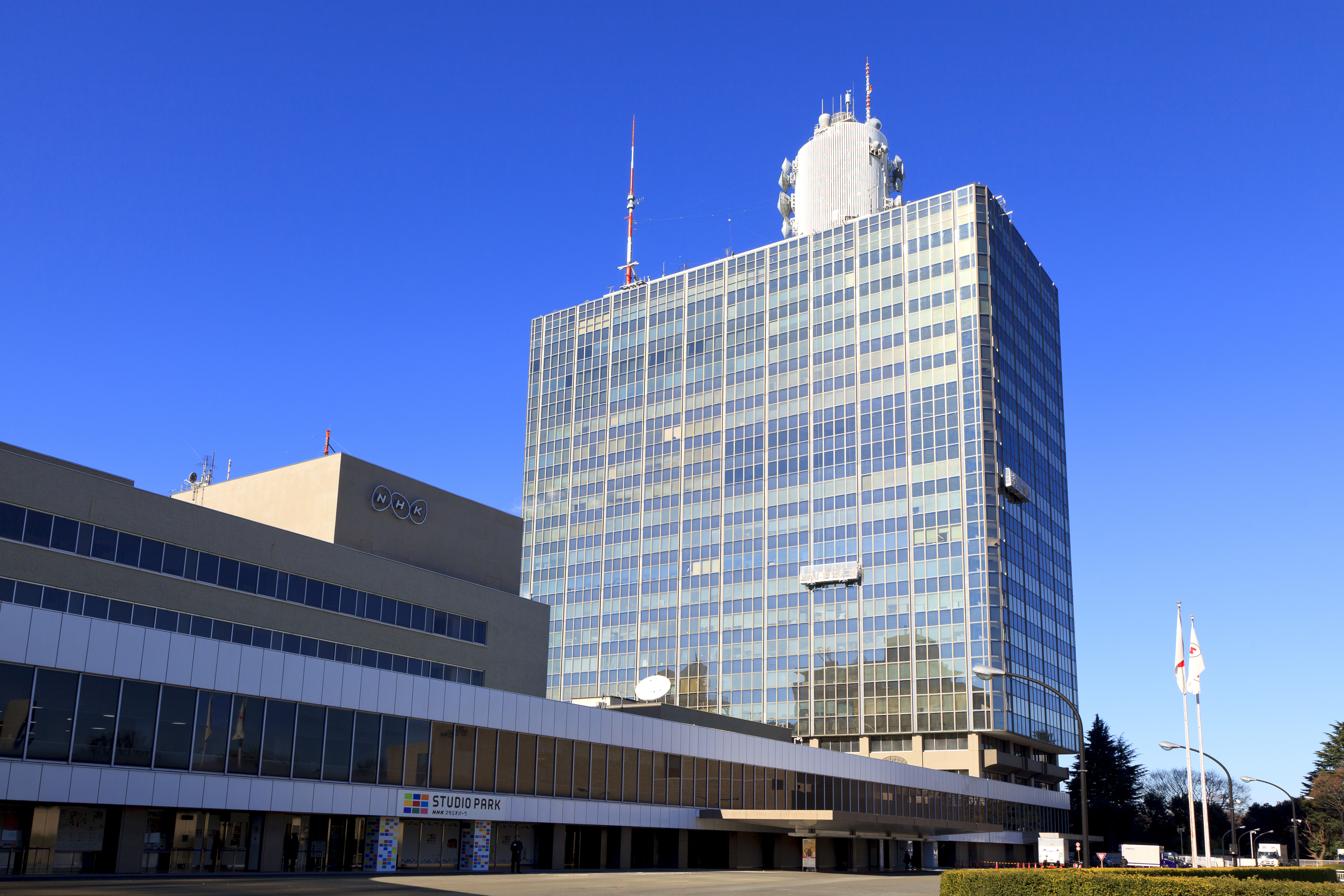By Nozomu Takeda
Japan’s public broadcaster faced a number of challenges in recent months, from the introduction of simultaneous streaming to governance and independence concerns.
Nippon Hōsō Kyōkai (NHK) has entered a period of great change, yet its fundamental role as public broadcaster remains cherished. As part of these efforts, significant technological developments have been made, particularly in the field of “Bosai” (reducing the risk of disaster damage), as well as the introduction of improved multilingual services.
Here is a roundup of the latest developments since our last update in March 2019.
Simultaneous streaming
At the beginning of March 2019, the government approved a bill that will allow NHK to start simultaneous online streaming of its programmes. Currently, NHK’s simultaneous streaming is limited to disaster and live sports coverage. NHK has been aiming to introduce simultaneous streaming to meet growing audience demand to watch programmes via their smartphones, especially ahead of the 2020 Olympics.
However, the Ministry of Communication and Internal Affairs irregularly requested NHK to review its plan at the beginning of November, to cut its online service budget. In NHK’s draft proposal, the budget for the online distribution was limited to 2.5% of revenues collected from licence fees, excluding spending for (1) Tokyo Olympics (2) International broadcast distribution (3) Captions and sign language support, and (4) Broadcasting for local areas and collaboration with private broadcasters for public benefit. However, the ministry said NHK’s online-based budgets were projected to grow to 3.8% of the revenue from viewing fees, resulting in them asking NHK to review the proposal.
Responding to the request, at the beginning of December, NHK decided to drastically cut its online distribution budget. As part of efforts, NHK will reduce the number of its satellite TV channels from four to three. In addition, NHK will limit the amount of time it can provide its online distribution service. Initially, it was scheduled to distribute 24 hours a day, but a proposal of 17 hours a day has been promised.
Public reaction towards the change varies. The Japan Times argued that “NHK must assume responsibility for improving the efficiency of its operations as a public broadcasting service supported by viewing fees” whereas the Asahi Shimbun claimed that “NHK needs to define its proper function and scale of operation as a public broadcaster. As a media organization, it must examine the health of its impartiality from government authorities. Crucial to such an undertaking is a viewer-first stance.”
Governance issue / Reporting on Japan Post group
Several Japanese newspapers reported that NHK postponed a TV programme about inappropriate sales by the Japan Post group’s insurance arm following a protest and warning to the NHK president from the group. The papers report that the public broadcaster’s Board of Governors also ordered the NHK president to deal with Japan Post’s protest. 57% of the stock of Japan Post Holdings Co. is owned by Japanese government.
According to the NHK president, they did not broadcast the programme in August 2018 because “there was not enough evidence” and the accusation that “freedom of self-independence and editorial was impaired” does not exist.
Concerns about the public broadcaster’s editorial freedom has emerged since it is abnormal that the Board of Governors – the supreme decision-making body of the public broadcaster – received pressure from an outside source over the content of its programming.
Technology
- Disaster: NHK is a leading media organisation in the field of disaster reporting and technology development. Taking advantage of 8K broadcasts, which started in December 2018, NHK Science & Technology Research Laboratories (STRL) is trying to incorporate 8K with AI’s image recognition technology for disaster risk reduction activities. 8K can work as a “visual sensor for protecting people’s lives” utilising its UHD imaging technology to detect earthquake faults and other disaster factors as well as to find people seeking rescue.
- Multi-lingual services: NHK WORLD-JAPAN has been strengthening its multi-lingual services in view of the growing interest in Japan with the approach of the Tokyo 2020 Olympic and Paralympic Games and rising numbers of foreign visitors to Japan. As part of its effort, NHK started experimenting with the automatic translation of multilingual subtitles on international TV programme live streams. The languages include Chinese, French, Indonesian, Spanish, Thai and Vietnamese.
- Paralympics: NHK will team up with the International Paralympic Committee to produce an official documentary film of the 2020 Tokyo Paralympic Games. It will be the first time the IPC has been involved in the production of official video recordings on the assumption that it will be released worldwide. At a press conference held in Tokyo on the 11th, IPC President Andrew Parsons said: “I hope that the understanding and awareness of people with disabilities will change significantly through the film.”
Header Image: NHK Shibuya, Tokyo, Japan. Credit: mizoula/istock
